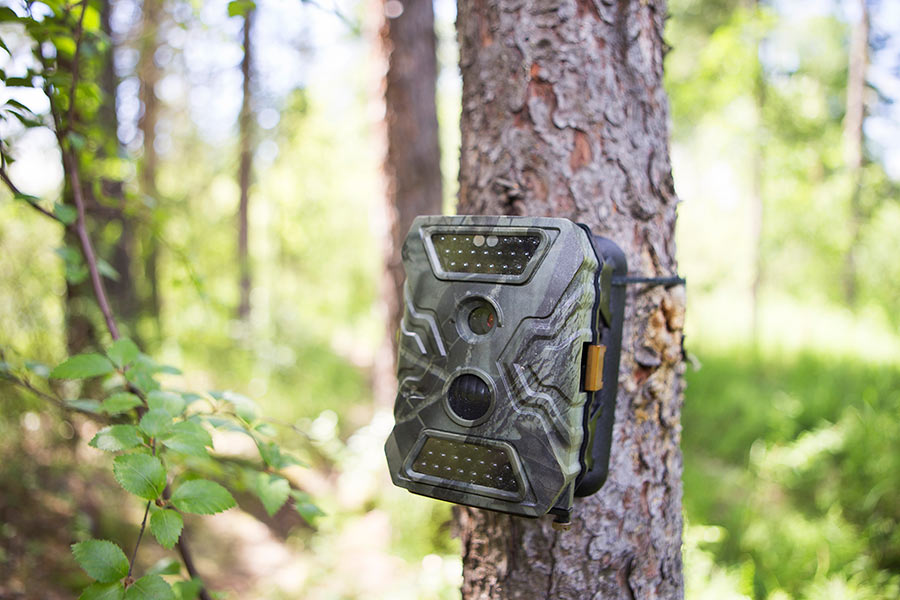There’s a regulatory grey space in relation to recreation wardens surveilling non-public property, and two looking golf equipment in Pennsylvania are presently difficult the problem. In December, the Punxsutawney Looking Membership and the Pitch Pine Looking Membership, which collectively personal and function over 5,000 acres of forested land, sued the Pennsylvania Sport Fee. Their lawsuit alleges that PGC recreation wardens routinely ignored “No Trespassing” indicators and locked gates with a view to spy on membership members with no warrant.
Each looking golf equipment are being represented by attorneys from the Institute for Justice, a public curiosity legislation agency that focuses on authorities violations of constitutional rights.
“Individuals ought to really feel safe on non-public property,” Frank Stockdale, president of the Punxsutawney Membership, informed the Pittsburgh-Publish Gazette final December. “They need to really feel like they’ve privateness and seclusion. However the Pennsylvania Sport Fee is making us really feel the alternative. We really feel invaded.”
The lawsuit names each the PGC and recreation warden Mark Gritzer. The golf equipment complain that for years, Gritzer and different wildlife officers have frequently entered and searched their privately owned lands to test membership members for compliance.
That is pretty customary exercise for recreation wardens, as any private-land hunter is aware of. If recreation wardens weren’t allowed to entry non-public lands, it will be almost unimaginable for them to research potential poaching or wildlife crimes. Nevertheless, proof turned over by the state in July revealed that along with surveilling hunters in particular person, wildlife officers had put in a path digicam on the property with out the membership’s data or permission.
However why is it authorized for Pennsylvania recreation wardens to arrange a path digicam on non-public property? Isn’t {that a} violation of the Fourth Modification, which protects towards warrantless searches? Properly, not precisely.
How Regulation Enforcement Circumvents the Fourth Modification
Andrew Wimer, director of media relations for the Institute for Justice, wrote a latest op-ed by which he explains that the “Open Area Doctrine” permits state and federal legislation enforcement to make use of monitoring methods equivalent to motion-activated path cameras to surveil rural lands. Initially created in 1924 and upheld by the U.S. Supreme Courtroom in 1984, the doctrine particularly states that “authorities intrusion and knowledge assortment upon open fields don’t represent searches or seizures underneath the Fourth Modification…even when there are fences or ‘no trespassing’ indicators across the discipline.” Many trendy path cameras have mobile picture and video functionality, so they’re able to ship photos to a telephone or laptop as they’re recorded.
Mississippi, Montana, New York, Oregon, Vermont, and Washington are the one states within the U.S. that don’t honor the Open Fields Doctrine. In Pennsylvania as in the remainder of the nation, there is no such thing as a restrict for when federal officers can come onto non-public property and for a way lengthy they will watch. With the help of trendy path cameras, this permits recreation wardens to consistently surveil non-public lands with no warrant for weeks or months at a time.
Out of doors Life reached out to PGC for remark, and the fee directed all inquiries to the Pennsylvania Lawyer Basic’s workplace. The AG’s workplace didn’t reply to requests for remark.
Because the lawsuit factors out, Pennsylvania’s state structure consists of three Warrantless Entry Statutes (Pa. C.S.A. 303(c), 901(a)(2), 901(a)(8)) which are particular to the state’s recreation fee. These statues give wildlife officers the authority to enter non-public property, posted or in any other case, with a view to conduct administrative inspections of individuals, licenses, firearms, decoys, blinds, and so on.
The present lawsuit in Pennsylvania represents a constitutional problem to those three statutes. And whereas it’s the newest case of personal residents contesting the federal government’s proper to surveil non-public property utilizing path cams, it’s definitely not the primary. Related lawsuits have been filed in Texas and Tennessee in 2018.
The result of the Pennsylvania case will probably be value keeping track of because it may probably set a brand new authorized precedent. Till then, wildlife officers there’ll proceed to be allowed to watch non-public lands with path cameras.

